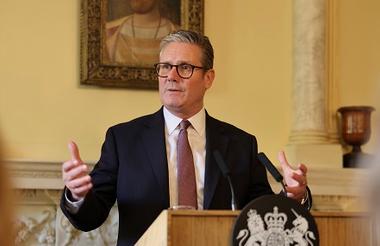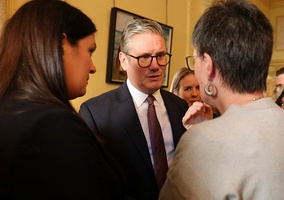Prime minister Keir Starmer has said he wants a “fundamental reset” of the relationship between his government and civil society, and authorised his culture secretary, Lisa Nandy, to draw up a new “covenant” that will frame the terms of that new partnership. So far, so promising. It’s no secret that the charity sector, too, would like a closer and more beneficial relationship with the holders of the nation’s purse strings. So we are starting from the same point, at least, and several civil society leaders have made cautiously optimistic sounds about the direction of travel. Why, then, did that same government, less than a week later, heap an estimated £1.4bn of additional employers’ national insurance contributions (NICs) onto the same sector that it purportedly wants to court?
Yes, we know the Treasury cupboard is bare and debt is through the roof, and we were fairly sure the chancellor was planning to clobber employers to spare working people from direct tax hikes. However, by a) promising to reimburse the rise in NICs to the public sector but not to charities; b) seeming unaware that charities don’t have the same options as private companies to claw back these additional costs; and c) giving the sector no advance notice of this devastating announcement, Labour offered a pretty poor early demonstration of its commitment to the mooted covenant.
The fact that Nandy’s department is asking charities to feed into yet another consultation on what such a partnership should look like, also shows a lack of consideration and understanding of the pressures facing the sector at present. Can’t ministers simply go back and read the Julia Unwin report, the Danny Kruger review, the Pitkeathley Lords select committee report? Those will tell them what they need to know.
It’s also disappointing how little, if any, publicity or promotion of the new special relationship there has been beyond the sector itself. I’m an avid consumer of political podcasts and I’ve not heard one commentator say that the government plans to put civil society at the heart of its solutions to the crises in public services. Likewise, a news alert I’ve set up for new charities minister Stephanie Peacock has delivered daily updates relating to her Barnsley South constituency, and to sport, but not a single one about the voluntary sector. Are they really on the same side?
Sector sources close to Labour’s top team insist that both Starmer and Nandy do have genuinely good intentions for the relationship. But they warn that we are still at the starting line in terms of those objectives taking hold with other ministers, special advisers and Whitehall departments. They also point to the stark reality that what the sector really wants and needs is more money. And there won’t be much of that for a good while yet.
For now, we can only wait to see how the government responds to the open letter from more than 7,000 charities aggrieved at the latest financial cliff-edge created by Reeves’s budget. If Starmer wants to prove that he really does want a fundamentally new approach, this would be a great place to start.
Related Articles












